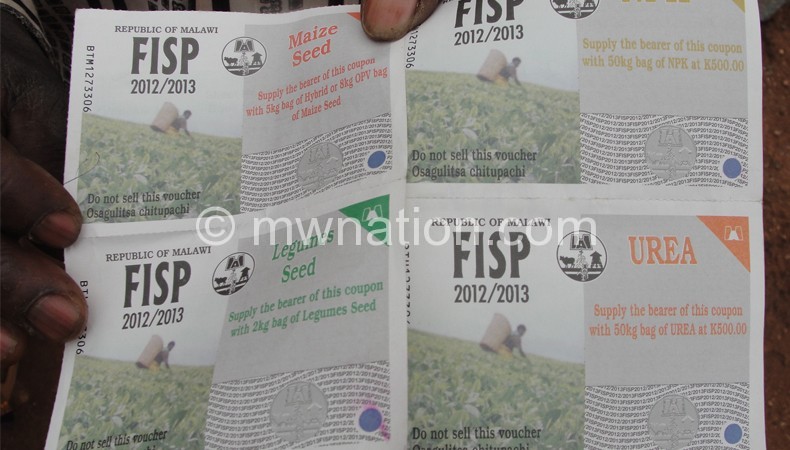CfSC exposes budget allocation gaps
The Centre for Social Concern (CfSC), a faith-based socio-economic think tank, has faulted the proposed 2015/16 national budget allocations and assumptions and has since urged government to be transparent in the financial plan.
Minister of Finance, Economic Planning and Development Goodall Gondwe made a number of optimistic assumptions in the budget statement for the 2015/16 fiscal year, projecting that the economy will register a real growth of about seven percent, inflation will decline to 16.4 percent while the exchange rate will be stable, among others.

But in its basic needs basket for April 2015, CfSC wonders where government will get the financial resources and deliver on its promises.
“Government keeps on promising its people fertiliser, cement and iron sheets subsidies regardless of the shrinkage in the national purse while the budget has done little to stimulate growth and create employment.
“Malawi Revenue Authority [MRA] has already been missing its targets in recent months, which is a clear sign of a narrowing revenue base as the business environment is unstable and stifled by unfavourable tax and interest regimes, which has forced businesses to scale down operations and others completely closing down,” reads the report.
CfSC said government should reform the tax structure so that the rich pay more tax than the poor by introducing a fourth tax bracket for the high salaries while lowering it for the lower salaries.
It said by doing so, government would not lose out on revenue, adding that taxation is not only meant to raise revenue but also reduce the gap between the rich and the poor.
While acknowledging reforms underway in sectors such as health which include introduction of referral fees, the grouping said the move could do more harm than good as a lot of people are already overcrowding health centres and failing to access specialist treatment at central hospitals due to lack of money.
The report, while appreciating the 33 percent reduction in the allocation to the Farm Input Subsidy Programme (Fisp) from K59.7 billion (US$132.7 million) to K40 billion (US$88.9 million), said there is need to consider integrating natural land restoration techniques into the programme.
CfSC has also commented on the maize situation and its price movement on the market.
“In major cities and towns, the prices are still as high as K118 per kilogramme instead of significantly going down as is normally expected during normal harvest season,” said the report.
NBM Capital Markets assistant investment analyst Paul Mojoo, responding to an e-mailed questionnaire regarding the budget, said the fiscal plan, which promises achieving macroeconomic stability has put fiscal authorities on a tight rope, giving little leeway to accommodate shocks.
He faulted government for not providing the slightest hint on what it is planning to do to spark economic growth to levels of seven percent.
“There is no quick fix to the problem. Trying to attain astronomical growth within one year is not practical because the resource problem that the budget has exposed cannot be solved within one fiscal year,” he said.





